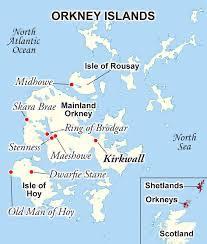Free Courses Sale ends Soon, Get It Now


Free Courses Sale ends Soon, Get It Now



Disclaimer: Copyright infringement not intended.
Context
The Orkney Islands' consideration of separating from the United Kingdom (U.K.) and becoming a self-governing territory, potentially under Norway.
Details
Reasons for Consideration
Potential Options
Historical Context
Current Government Support
Responses from Governments
Council Decision and Future Talks
Broader Context
About Orkney

Disclaimer: Copyright infringement not intended.
Historical Significance
Economy and Energy Production
Language
Festivals and Traditions
Folklore and Mythology
Arts and Crafts
Music and Dance
Cultural Preservation and Heritage Sites
Integration of Cultural Identity
|
PRACTICE QUESTION Q) Examine the historical context, economic considerations, and challenges involved in Orkney's desire for alternative forms of governance. (150 words) |
© 2024 iasgyan. All right reserved